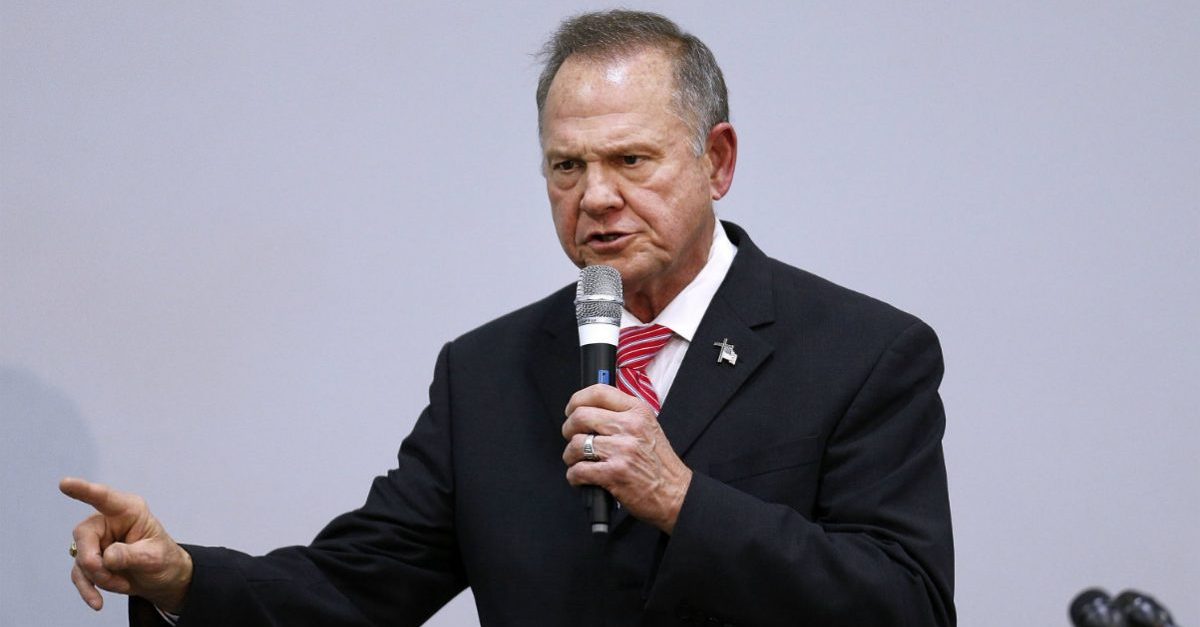
A group of conservative constitutional attorneys—including the “scandal-plagued” former chief justice of Alabama’s Supreme Court Roy Moore—joined the numerous other parties seeking leave to file briefs as amici curiae, invariably asking the U.S. Supreme Court to take up Rep. Mike Kelly’s (R-Pa.) lawsuit seeking to overturn Pennsylvania’s election results. Unfortunately for Moore, the Supreme Court has already rejected Kelly’s application for injunctive relief without comment.
In the filing, Moore and his colleagues—two law professors and a recent law school graduate—argued that the commonwealth court’s decision to dismiss Kelly’s lawsuit based on laches violated the Supremacy Clause of the U.S. Constitution.
According to the motion, the Pennsylvania Supreme Court justices were legally required to decide the case based on the Constitution itself, asserting that the application of the doctrine of laches in the case was unconstitutional.
“[T]he Constitution required the Pennsylvania Supreme Court to adjudicate the case before it under the Electors Clause and Pennsylvania law inasmuch as it was consistent with the Pennsylvania Constitution,” the motion stated. “By disregarding those authorities and deciding the case on the basis of laches, the Pennsylvania Supreme Court elevated a state-law time bar above the Constitution itself. This violated the Supremacy Clause, which holds that the Constitution preempts the law of the states when the two conflict.”
In a more audacious argument, the attorneys also argued that the process of widespread early voting is itself unconstitutional, relying on an extremely narrow reading of Art. II which delegates the power to set the date of elections to Congress. The group argued that based on the text of the Constitution, Congress clearly only intended for citizens to cast their ballot on Election Day.
“From this constitutional provision, it is clear that the Constitution contemplates a set nation-wide time for choosing Electors, that is, for voting for President and Vice-President,” the motion stated. “From 3 U.S.C. § 1, it is clear that Congress intended to fix a single day for this election to take place, and that this day should be uniform throughout the United States.”
According to the filing, while absentee ballots are permissible for those who have “valid reasons for being away from home” on Election Day, it cannot take the place of in-person voting for significant portions of the population.
“Congress certainly did not intend to open the floodgates to allow anyone to vote weeks or months in advance of the federally-established election date, whether in person or by mail or by ballot harvesting or other means which might vary dramatically from one state to another,” the group wrote. “The Framers of the Constitution in 1787 and those who adopted the Twelfth and Twentieth Amendments, as well as the Congress of 1948 that adopted 3 U.S.C. § 1, clearly contemplated a system of uniform dates for holding the Presidential election, assembling the Electors in their respective States to cast their votes, and opening and counting the ballots of the Electors.”
But Moore’s arguments aren’t going anywhere. Shortly after Moore filed the motion, the U.S. Supreme Court issued an order denying Rep. Kelly’s application.
Read the filing from Moore et al. below:
Roy Moore Motion to Submit Amicus Brief in Support of Application for Injunction by Law&Crime on Scribd
[image via Jonathan Bachman/Getty Images]
Have a tip we should know? [email protected]